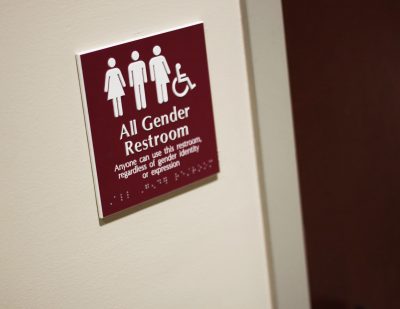
Four Massachusetts churches filed a lawsuit on Tuesday against the Massachusetts Commission Against Discrimination and Massachusetts Attorney General Maura Healey in response to an amendment that regulates the use of public accommodations, including those in churches, based on gender identity.
The lawsuit stated that MCAD and Healey’s interpretation of the amendment, which has been implemented since Oct. 1, encroaches on churches’ right of religious expression apropos of biological sex and gender identity.
“The Churches and Pastors affirm the goodness of God’s design in creating only two sexes, and believe that they are called to help every person embrace his or her distinct, but complementary, maleness and femaleness,” the lawsuit stated.
The plaintiffs are Horizon Christian Fellowship, Abundant Life Assembly of God, House of Destiny Ministries and Faith Christian Fellowship of Haverhill, according to the lawsuit.
In a “Gender Identity Guidance” issued on Sept. 1, MCAD stated that “a church could be seen as a place of public accommodation if it holds a secular event, such as a spaghetti supper, that is open to the general public.”
Andrew Beckwith, an attorney at Alliance Defending Freedom, which prepared the lawsuit, said churches are not public accommodations, and the lawsuit intrudes on the principles of religious freedom in the First Amendment.
“The people who come in are not customers, there’s no fee for service, they’re guests, and so it’s much more like a private home in that sense,” said Beckwith, who is also the president of the Massachusetts Family Institute. “The lawsuit is again to preserve that freedom for churches to be able to teach their faith and act and operate consistently with their faith within their buildings.”
Freedom Massachusetts campaign co-chairs Kasey Suffredini and Mason Dunn said in a Tuesday press release that the lawsuit counters the anti-discriminatory essence of the Massachusetts transgender protections law.
“Hundreds of faith leaders and communities spoke out in strong support of the transgender protections law this year, making clear that equal treatment does not infringe on religious freedom,” Suffredini and Dunn stated in the release. “This lawsuit is no more than a last-ditch scare tactic to single out transgender people for attack.”
Angela Dallara, a spokesperson for Freedom for All Americans, wrote in an email that “more than 350 religious leaders and congregations have supported the law.”
“Churches have been compliant with Massachusetts’ nondiscrimination laws for decades,” Dallara wrote, “and updating the law to include protections for transgender people will not hurt freedom of religion.”
Spencer Piston, a political science professor at Boston University, said the anti-discrimination legislation is a positive step toward the acceptance of transgender people in society.
“Legislation like this strikes at the heart of who we are — who belongs and who doesn’t in American society,” Piston said. “This legislation is a tiny but important step toward inclusion.”
Several Boston residents questioned the churches for filing the lawsuit.
Denise Murphy, 63, of South Boston, said filing lawsuits shortly after the amendment took effect was a hasty move and that the churches should consider implementing it for a while.
“It’s a great idea for any transgender person, but as far as kids and sexual prejudice, that’s where I get very nervous with that — that they could overstep boundary,” she said. “I don’t think there should be lawsuits already. It should be tried, see how it goes.”
Peter Magaldi, 68, of South Boston, said having gender-neutral bathrooms would not only tolerate gender preferences. but would also be convenient for residents.
“They should all be that way because it doesn’t matter — if you have to go to the bathroom, who cares what sex you are?” he said.
However, the churches should not be forced to oblige by the law, Magaldi said, since he sees them as private properties.
Christopher Buote, 32, of Allston, said anti-discrimination laws should be brought up more to increase society’s awareness.
“Everybody should be treated the same way,” he said, “especially in a church, because they’re the ones who’s talking about ‘This is the way everything should be,’ ‘Everybody should be treated in a certain way,’ and to discriminate regardless of what the beliefs are.”
Alyssa Meyers contributed to the reporting of this article.






















































































































